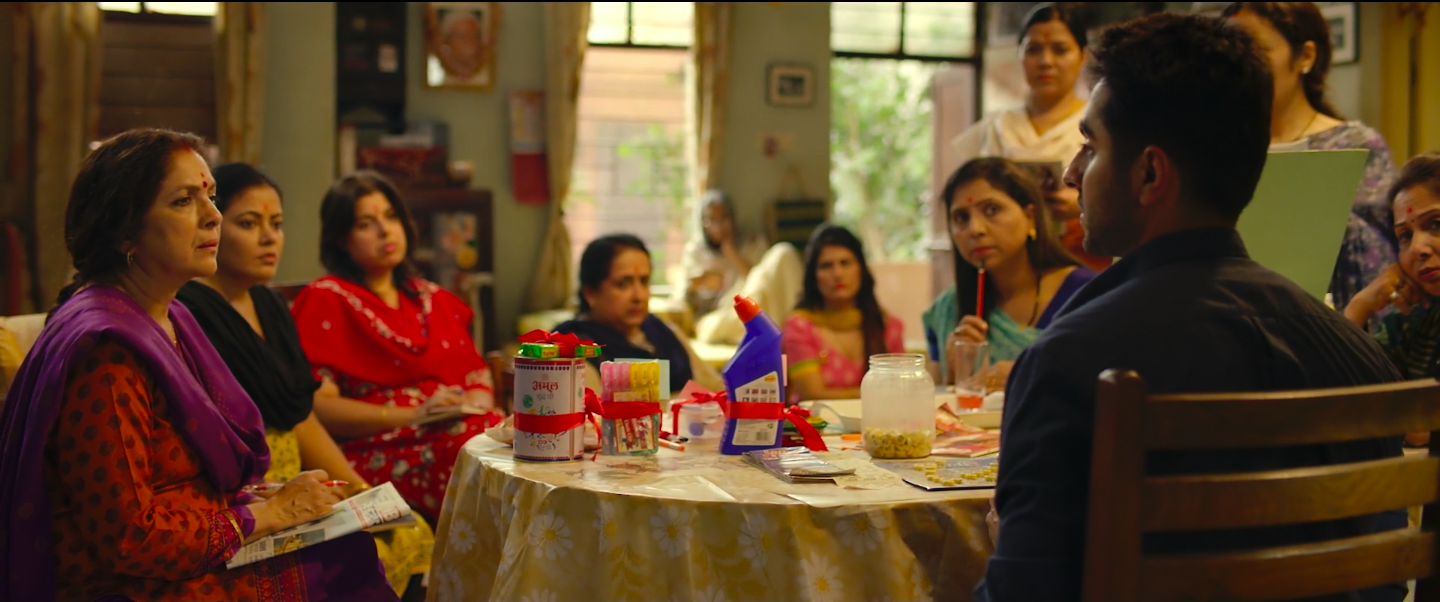
Kitty parties were the original friends with benefits
Microfinance within a social group of like-minded people (largely) – so why the bad reputation?
The term used to make Purnima Gupta (59) cringe. She remembers being a kid and watching her mother getting dolled up. It was the only time she’d wear red lipstick. A racy choice for the times that lifted eyebrows and raised questions. Neither of which Gupta liked. She never imagined that she herself would one day be bungee jumping in Rishikesh as that month’s kitty party activity.
Paragliding in Bir, trekking in Ladakh, sipping sangria on a luxury houseboat in the backwaters of Kochi, her kitty group has done it all. “I ate crow. I judged my mother so much when I was younger. I used to get angry at her, shout at her for going to her kitty parties because of other people’s comments about it. But I don’t think I ever actually just spoke to her about it until I joined one myself,” Gupta admits.
Her kitty group became a space for her to try new and exciting activities she wouldn’t have had the courage to do otherwise. “There are so many adventures I wanted to go on. Road trips, parasailing, getting a second ear piercing. As young girls, so many of us are sheltered and cloistered as if one scratch will reduce our product value on the marriage market. Nobody wants their prospective daughter-in-law to do these ‘wild things’.”

When we talk about kitty parties, it’s easy to picture a group of middle-aged women in fancy threads and makeup, laughing loudly at a restaurant. The rest of us impatiently wait on our dishes to arrive, scoffing every time the group’s laughter erupts.
“I think daughters-in-law hated kitty parties the most. You knew the gossiping and complaining that would happen about you behind your back by your mother-in-law and her friends. But instead of addressing that, we rejected the entire concept of kitty parties, ridiculed it and broke it apart as this evil congregation of hags. I mean, my disagreements with my mother-in-law existed within and outside that group,” says Laxmi Krishnamoorthy (43).
Perhaps kitty parties’ bad reputation is simply a matter of linguistics. The term cooks up a feline image, kind of like Cassius Marcellus Coolidge’s Dogs Playing Poker painting. Media depictions will have you believe it’s a group of conniving vamps gathering around a cauldron, like Shakespeare’s witches doubling toil and trouble for the main character. The joviality and revelry of a ‘party’ suggesting that these women clearly have a lot of free time to spend on frivolous activities. Don’t they have housework to do or children to care for?
We forget that the kitty party was probably the only source of savings that a lot of women, especially the older generation, had access to. “We grew up in a middle-class family, and I remained so through marital years. My husband was an alcoholic. I’d save little money from the money I’d get for house expenses and keep that for emergencies outside of the home with my kitty group. Otherwise, he’d spend it on alcohol or playing cards,” says Thelma Gaonkar (71).

Gaonkar, like many women of her time, wasn’t allowed to work. Life was limited to the house and family, and at the age of 13, she was made to drop out of school. “I didn’t have any friends. Just ladies in the family I’d spend time with while we did our chores. One woman in the chawl where I lived told me about this chit fund group that was starting and I jumped at the chance of saving money and maybe making some friends. I was 19 at the time and knew so little about the outside world. No matter where we moved or lived, I’d try and find such a group to join.”
On Gaonkar’s encouragement, her sister also joined a kitty group across the city. When a health crisis came up, it was the money collected by the group at each gathering — the kitty fund – that paid for most of her hospital bills.
Every group has their own way of functioning, explains Farida Chitalwalla (53). “The group decides on the kitty amount. When you meet, you put in chits with the names of the people who are yet to get the kitty fund, so they benefit the next turn. Generally, the days to meet are fixed. For example, it can be the first Wednesday of every month, so you keep that day free.”
Some kitties also have a fine if you miss a gathering. You still have to put in your promised amount of money. Chitalwalla says that way, the other people in the group still have access to the predecided sum of money in the pot when they joined.

As the years passed, Gaonkar saw the kitty groups taking on a more social nature. As we grew more liberal and globalised as a society, the middle class started to move up. “Women started leaving their homes, but after a lifetime behind a closed door, where does one go? How do you make friends?” says Madhu Shankar (62).
Like most information about kitty parties, she found one through word of mouth. She wasn’t as interested in the monetary benefit of the gang as she was in befriending women who weren’t her kin. “We were all from different backgrounds, lived in different cities. We had so many stories to share with each other.” She moved neighbourhoods but always went back to her kitty group for their monthly meetings. “They were such a help. Whether it was time for the children’s school admission, a broken appliance, divorce. They always supported you and helped the best they could, sharing contacts and information.”
This is also around the time that it started to become more about the shosha baazi, says Monica D’Costa (68). “It was all about showing off. Who can afford more house help, fancier food, catering and all that. It was still enjoyable but the camaraderie was getting lost. I left that group eventually and later joined another one with a friend I made in the first group because that support of other women who can understand your life and problems was something I really missed,” she says.

From humble origins, kitty parties have now become lavish affairs. Banquet halls have special rates for the groups. Country clubs and restaurants offer attractive packages and group discounts. Gupta’s daughter, Neha Chaturvedi (32) attended her first kitty party with her sister-in-law last year. We’re talking a kitty worth lakhs of rupees, complete with private showcases of designer jewellery, gourmet meals and fine wine. “It started at 12 pm and went on till the evening. It was nothing like I’d expected at all. Every attendee looked like they had been plucked out of a designer catalogue. By the end of it, it was decided that since everyone’s turn had come up, next month they would use the money and go on a group holiday.”
There was some husband-bashing and gossiping about neighbours as the stereotype goes, but Chaturvedi came away with a new perspective on kitty parties.
Her grandmother and mother had been frequent attendees of kitty parties but she was never that interested in them. With a new business in Bengaluru and a child at home, there was little time for her to do anything else. Family members helped out where they could but there were some things she couldn’t talk about with them.
“That first group really opened my eyes. It was a lot to take in but I realised that these were some accomplished, successful women. One was the CEO of a company, another was leading an NGO to raise funds for rural healthcare. It wasn’t just time-pass for bored housewives. I could learn a lot from their business acumen. If they want to have lobster while sharing trade secrets and supporting each other through relationship upheavals, who am I to judge?” says Chaturvedi.
She joined a small group of women-led small business owners who pool in their money in case of emergencies. “During the pandemic, it was such a boon knowing at the back of my head, I had this emergency fund that would be untouched by usual monthly expenses. I’ve also learnt so much from them in terms of work-life balance, parenting and professional life. I made new friends too.”

Kitty parties aren’t limited to women only anymore, nor are they just means to a money pot. Chitalwalla is part of a couples group that takes trips together and her daughter Lamiya (26) has joined a gold kitty. It’s OK if you just pictured a Chinese fortune cat, or maneki-neko, because we did too at first.
She heard about the concept through a friend and decided to join a group of her own. “Every month the group gives a share of money and a piece of gold is bought which goes to one person. It’s a great way to save, plus all my other savings are in mutual funds or crypto so this was a more traditional and safer approach,” Lamiya explains.
Kitty parties in nature have become as diverse as Indian cuisine. It can take some trial and error to find a group that matches your disposition.
You could be popping champagne at Aarifa Bhinderwala’s pole fitness class in Bandra, forming a rotating saving association in a Mumbai chawl or finding a professional mentor in Bangalore.
As our needs changed, so did the kitty parties we gravitated towards. It’s time we stop wincing at the name and call it what it is. A microfinance support group of like-minded people, largely. A way to make friends, share stories, learn and try new things and maybe generate some savings in the process. Isn’t that what most friends are for? Kitty group, kitty parties, kuri, chitty, girl gang – whatever you want to call them, they’re the original friends with benefits.




